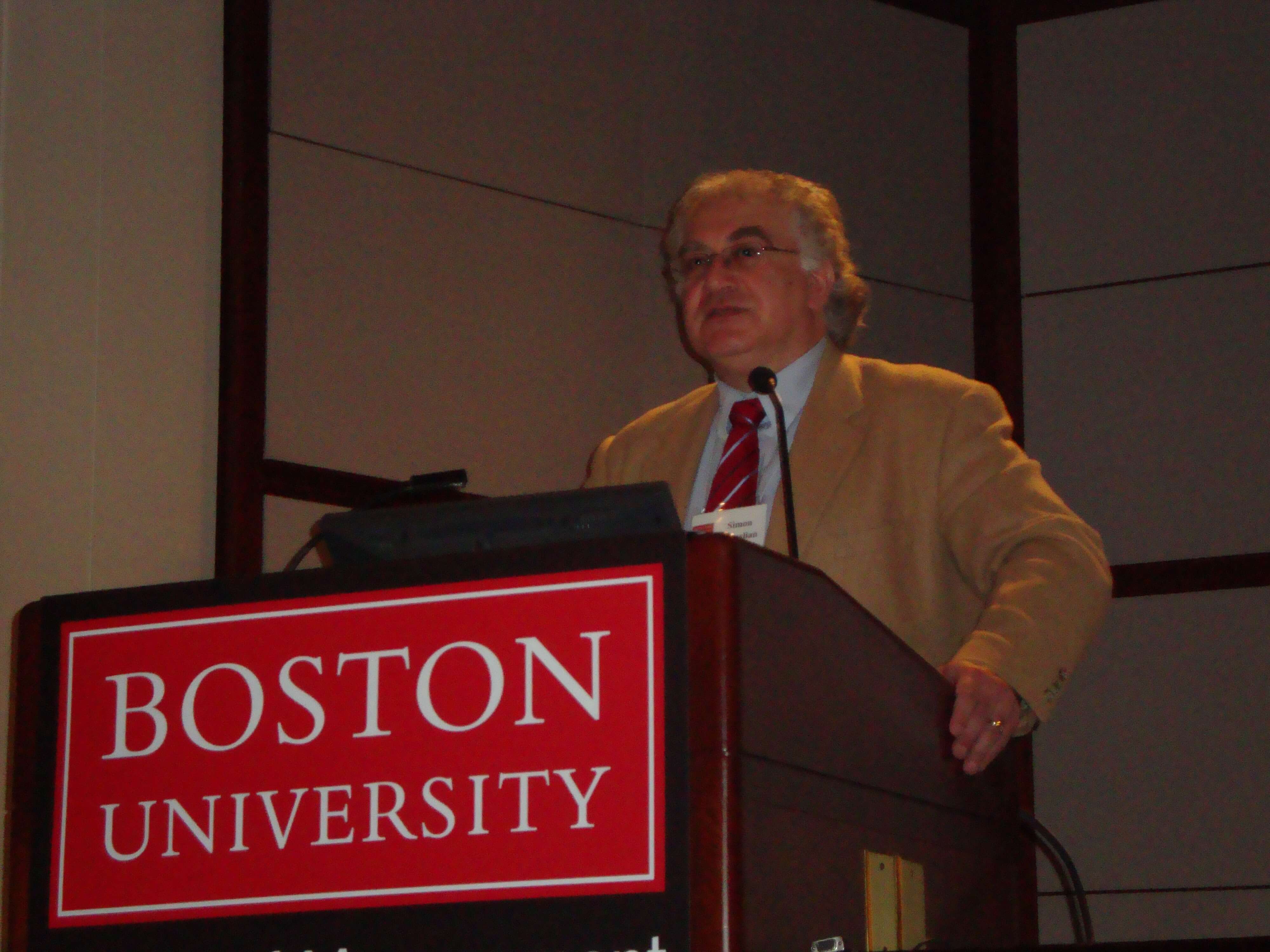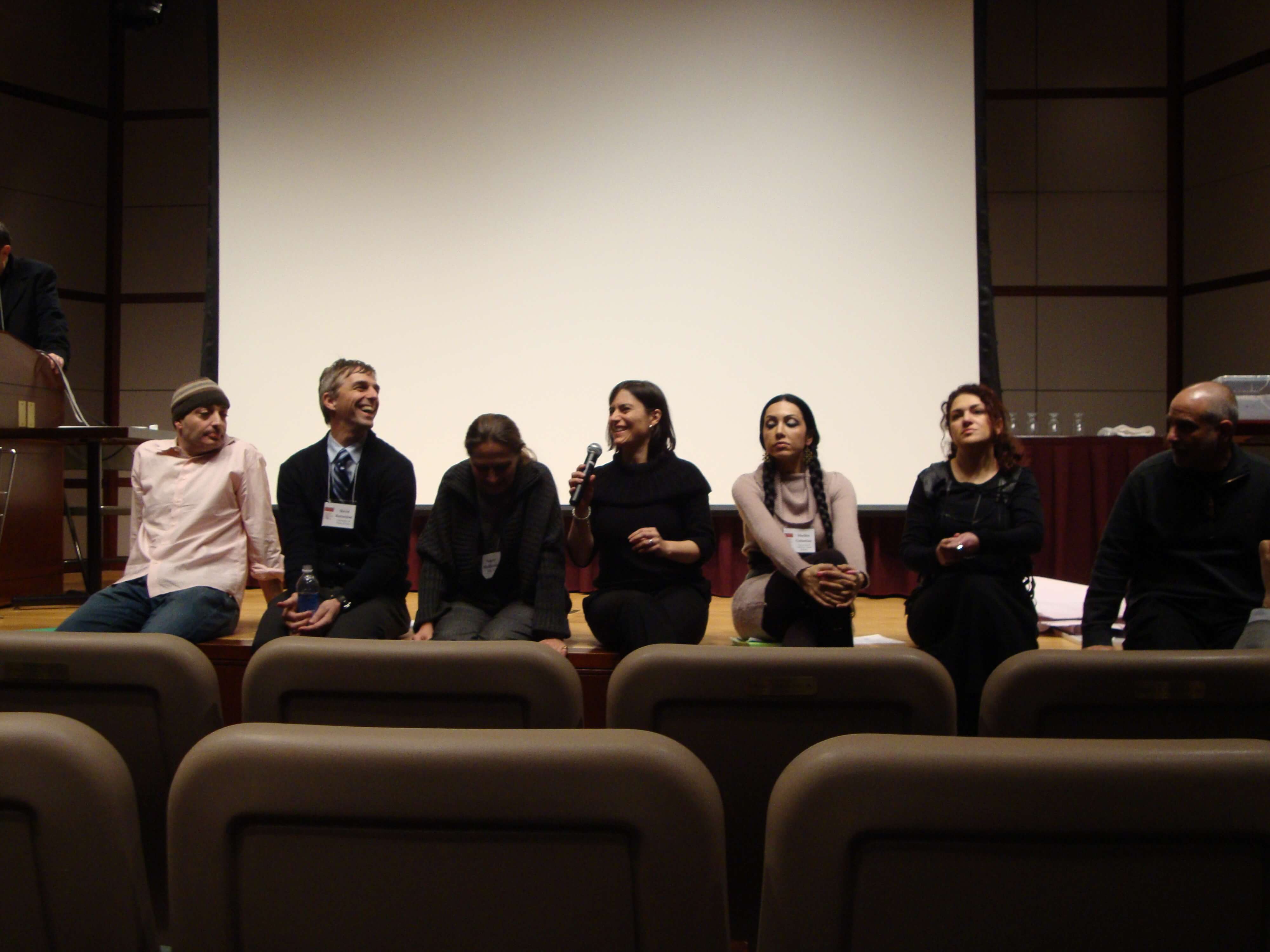Boston—History, culture, and identity were the focus of over thirty scholars gathered at Boston University to participate in the “International Conference & Student Workshop on the Armenian Diaspora.” The conference, organized by Dr. Simon Payaslian, took place from February 12 to 14 and was co-sponsored by the Charles K. and Elisabeth M. Kenosian Chair in Modern Armenian History and Literature at Boston University, the National Association for Armenian Studies and Research, and the International Institute for Diaspora Studies (A Division of the Zoryan Institute).
“Armenian diasporan communities emerged over centuries as a result of voluntary migration and forced displacement in times of military conflicts, the Genocide during WWI, and economic and political crises,” explained Dr. Payaslian in his opening remarks.
“We are thrilled that this conference has brought together scholars to present their new research on the Armenian diaspora and to explore the evolution of Armenian diasporan communities and stimulate analyses of current issues,” he added.
The three-day conference was exceptional, in that the participants who came from Armenia, Canada, England, France, Germany, Italy, Lebanon, Romania, and the United States, could not recall another academic conference of such size, diversity and scope. The presentations covered a wide array of topics in the broad field of Diaspora Studies. Panels dealt with the following themes: Transnationalism, Nationalism & Conflict; Diasporic Identity; Human Rights & Genocide; Diasporic Identities and Community Building; Diaspora and Cultural Development; Narrativization of Diasporic Belongingness and Revival; Armenian Repatriations; The Desnelle Collective (contemporary artists in various media); Culture & Economy in Diasporan Communities; Transdisciplinarity of Diaspora Studies; and Diasporan Ethno-nationalism & Transnationalism.
The first day of the conference represented the work of young, up-and-coming scholars. Their level of expertise and dedication to the subject promise a bright future for Armenian Diaspora Studies. The number of scholars working in the field and the variety of their subjects was also a revelation to many, as before this conference they were not aware of each other’s work in this field.
Particularly enjoyed at the conference was a session entitled “The Desnelle Collective,” which included papers and presentations about the Armenian Diaspora through various art forms, including video, the book, performance art and painting, along with analytical discussions. Discussant David Kazanjian from the University of Pennsylvania described the session as “a breath of fresh air in which I am exalted to step.”
Summing up the success of the event Dr. Payaslian explained there is still a lot of work to be done. “As a first step, it is necessary to expand the temporal and spatial parameters of Armenian Diaspora Studies, to integrate theoretical and empirical, qualitative and quantitative approaches,” he stated in his closing remarks. “There are other topics that Armenian Diaspora Studies must consider that are extremely important and necessary, such as the study of community leadership, and the study of the role, place, significance and impact of at least four major institutions which include: political parties, the church, the media and schools,” Dr. Payaslian concluded.
Details about each of the participants and their presentations, including photos from the
conference, are available at www.diasporastudies.org.
The International Institute for Diaspora Studies (A Division of the Zoryan Institute) is dedicated to the study and dissemination of knowledge regarding the phenomenon of diaspora. The Institute investigates the character, capacity and concerns of diasporan communities, as both domestic and international actors, and promotes a deeper understanding of diasporas, transnational immigration networks and their impact on both home and host countries. Since 1991, Zoryan’s pioneering Diaspora: A Journal of Transnational Studies, under the editorship of Prof. Khachig Tololyan, has played a leading role in directing the discussion in an interdisciplinary and comparative manner. For more information please contact the Zoryan Institute by email zoryan@zoryaninstitute.org or telephone (416) 250-9807


